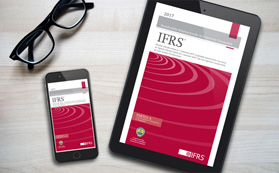
Social economy - philosophy or reality?
Numărul 29-30, 26 iul. - 8 aug. 2023 » Finance & Economics
Abstract
Social economy is a solution to the multiple problems faced by contemporary society: poverty, social exclusion, marginalization, etc. As a result, it is now recognized as an area of great relevance and necessity.
Starting from rescuing people in need, the social economy can lead to creating a context of economic well-being, both personal and community.
Entrepreneurs are those who can join central and local authorities in their efforts to solve social problems in the community. As a result, social enterprises represent a new type of initiative, with the role of solving a social problem using business tools: the production and sale of products and services.
Keywords:
Social economy, social enterprises, social inclusion enterprises, vulnerable group, social assistance
Introduction
The society we live in has economic, educational and, last but not least, relational challenges. Considering the last aspect, the relational one, decision-making forums need to find and implement a new vision on solving economic and cultural problems, which until recently were only generally discussed. Entrepreneurs are the ones who can join central and local authorities in their endeavors, which prioritize solving the social problems facing our society today: poverty, exclusion, marginalization, social aid and assistance.
Internationally, social entrepreneurship has become a global phenomenon with extensive recognition at the highest level. In Romania, conceptually speaking, discussions about the social economy sector are relatively recent, stimulated, first of all, by the promotion measures included in projects financed by the European Social Fund, especially through the Human Resources Development Operational Program 2007-2013. The Law on Social Economy was issued in 2015 amid the need to recognize this sector. However, the discussion about income generation by non-governmental organizations with social objectives to support their specific goals is older and is estimated to have started immediately after the year 2000. Back then, the prospect of European integration led traditional international donors, public or private, and their beneficiaries, especially those who have developed social services, to think about the long-term sustainability of this type of activities.
Why is this sector of the social economy needed?
Specifically, we refer to those marginal communities in society, to people who, for reasons beyond their control, are marginalized or insufficiently helped to become a valuable factor for their family and even for the society in which they live in. Those who deal with social problems have realized that disadvantaged, excluded or marginalized people could be the key to solving these problems. Involving the very people who represent the problem in eradicating or solving it can be a successful act from two perspectives:
- the person himself will overcome the blockage, the poverty, through the new status he will acquire by becoming an active actor in the labor market and economy;
- the inclusion, social involvement of the disadvantaged will prove that the economy can also have a pronounced social and not only a productive nature.
This is how we better understand why this formula of economic management, known as social economy, was reached. We talk about economic management because it is too much to say that the social economy is intended only for disadvantaged people. In fact, it comes to capitalize on the ability of some people to provide added value through their work, thus ceasing to be a problem in society, only consumers of social services, without a perspective of personal and, implicitly, financial development.
In this context, we believe that the term social economy is most fitted. It expresses the vision that such economic activity is not essentially aimed at creating equity, and instead it focuses on people. It helps them get out of poverty and marginalization by giving them the opportunity to work and to become an example and a factor of support for other disadvantaged people. At the same time, along with the people, the community, the region in which they carry out their activity will also be renewed and developed. In a word, the social economy starts from saving people in need and can end up creating a context of economic, personal and community well-being. In the following, we try to give an answer to our question in the title: Social economy - philosophy or reality?
1. Social economy – a social philosophy transposed into economic pragmatism
Internationally, social assistance is a characteristic of developed countries with a strong economy. This allows socially vulnerable people (whatever the cause of this vulnerability) to be provided with minimum means of living, so as not to be left to misery. In this regard, we recall that in 2021 the topic of social entrepreneurship was a priority on the agenda of the Davos Economic Forum, as an essential sector in post-pandemic economic restructuring. According to information from the World Economic Forum[1], in the last two financial crises, the social economy has overtaken other sectors of industry and generated up to 12% of jobs, while also solving pressing social problems.
Another milestone is April 2023, when the United Nations (UN) General Assembly adopted the resolution "Promoting the social and solidarity-based economy for sustainable development" (A/77/L.60). The resolution provides an official definition of the social and solidarity-based economy and recognises that it can contribute to achieving and localising the Sustainable Development Goals.[2]
The UN Inter-Agency Task Force on Social and Solidarity Economy said the vote was a "historic moment for the social and solidarity-based economy".[3]
According to the Thomson Reuters Report,[4] the best 5 countries for being a social entrepreneur are: Canada, Australia, France, Belgium and Singapore.
The European Economic and Social Committee estimates that the social economy in Europe represents 2.8 million social enterprises, employing more than 13.6 million paid jobs, or 6.3% of the working population, and generating 8% of EU GDP. It is estimated that every year 1 out of 4 enterprises established in the European Union is a social enterprise. In Senegal, 18.1% of the country's population is involved in social entrepreneurship initiatives. In the US, 89% of all social businesses have been established since 2006, and 22% of social enterprises have revenues of more than $2 million.[5] But in countries with fewer economic opportunities, welfare programs are also poor. The same formula is applied to regions in different states. Some regions are more economically and socially developed, others are not. Observing this reality, it was found that if you want to economically raise a region, you must also invest in increasing the welfare of those who live there. First, you need to address them by giving them the opportunity to earn a decent living. In return, they will contribute to the development of the community they live in. From this side or point of view, social economy is the beneficial act of personal and community development through those who, until yesterday, represented a set-back through poverty and other social exclusions, even a reason for regression.
2. What would be the directions and the policies to support the development of this sector?
To answer this question, we will analyze some features of the social economy, the legislative framework that allows its functioning and concrete results. They provide an insight into what this sector of activity should be, which could become a top priority for all of us, and not only for the government.
2.1. Concept. Legislation
Social economy legislation.
The field of social economy is regulated by Law no. 219/ 2015[6] on social economy with subsequent amendments and completions.
According to Art. 2 of this law, social economy is defined as "all private activities of an economic and social nature, serving the general interest, the interests of a community and/or personal non-patrimonial interests, by increasing social inclusion and/or the supply of goods, the provision of services and/or the execution of work"[7]. The social economy is therefore based on that private, voluntary and solidarity-based initiative with a high degree of autonomy and responsibility that supports social needs.
The methodological rules for the application of the provisions of Law no. 219/2015 on social economy are approved by Government Decision no. 585/ 2016. We therefore have a regulatory framework that helps recognizing these social economy activities.
Social economy entities[8], such as: cooperatives, associations and foundations, mutual aid houses, agricultural societies, all operate under specific laws, but Law no. 219/2015 provides official recognition of them in the field of social economy. Therefore, this law comes with the definition of the term "Social Enterprise", which is a Statute granted by attestation to those legal entities specified in Art. 3 of the Law. Social economy entities classified as social enterprises (these are certified and comply with social economy principles) are presented in Table no. 1
According to art. 3 Social enterprises can be:
Table no. 1
| Name of entity | Legal framework for operation |
| Cooperative societies | Law no. 1/2005 on the organization and functioning of cooperatives, republished; |
| Credit unions | Government Emergency Ordinance no. 99/2006 on credit institutions and capital adequacy, approved with amendments and completions by Law no. 227/2007, with subsequent amendments and completions; |
| Associations and foundations | Government Ordinance no. 26/2000 on associations and foundations, approved with amendments and completions by Law no. 246/2005, with subsequent amendments and completions; |
| Employee mutual societies | Law no. 122/1996 on the legal regime of mutual aid funds of employees and their unions, republished; |
| Pensioner mutual societies | Law no. 540/2022 on pensioner mutual societies republished; |
| Agricultural societies | Law no. 36/1991 on agricultural societies and other forms of association in agriculture, with subsequent amendments; |
| Agricultural cooperatives | Law no. 566/2004 on agricultural cooperatives, with subsequent amendments; |
| Any other categories of legal entities. Here we can give as an example limited liability companies or joint stock companies certified as social enterprises | Law no. 31/1990 of companies, with subsequent amendments; |
There are often confusions and ambiguities regarding these terms in practice: social economic enterprises, social enterprises, inclusion social enterprises.
For this purpose, we believe that some clarifications are needed.
Social economy enterprises are those enterprises/organizations subject to the principles of social economy, and respond to the objectives of social economy.
The principles of social economy are defined in Art. 4 of Law nr. 219/2015, as follows:
- Priority given to the individual and social objectives over increasing the entity`s profit;
- Solidarity and collective responsibility;
- Convergence between the interests of associated members and the general interest and/or interests of a community;
- Democratic control of members, exercised over the activities carried out;
- Voluntary and free nature of association in the forms of organization specific to the field of social economy;
- Distinct legal personality, management autonomy and independence from public authorities;
- Allocating most of the profit/financial surplus to achieve objectives of general interest, of a community, or in the personal non-patrimonial interest of members;
- Transparent and accountable decision-making process in the interest of the community it serves.
Social enterprises are those social economy enterprises, certified by the County Employment Agency. This attestation is obtained at the request of the entities listed in Table no. 1. if they provide in the bylaws cumulative compliance with the following criteria:[9]
- they act for social purposes and/or in the general interest of the community.
- they allocate at least 90% of the realized profit/surplus to the social purpose and statutory reserve.
- undertake to transfer assets remaining after liquidation to one or more social enterprises.
- allocate the principle of social fairness towards employees and administrators by ensuring fair salary levels, between which there can be no differences exceeding the ratio of 1 to 8.
This attestation is granted for a period of 5 years, with the possibility of extension.
Inclusion social enterprises are social enterprises that employ at least 30% of the employed staff or cooperative members from a vulnerable group, and working time must represent at least 30% of the total working time of all employees[10]. Therefore, inclusion social enterprises are social enterprises employing disadvantaged people belonging to a vulnerable group.
The vulnerable group is represented by individuals or families who risk losing their ability to meet their daily living needs, due to situations of illness, disability, poverty, drug or alcohol addiction or other situations that lead to economic and social vulnerability, according to Art. 6 ( p) of the Law on Social Assistance no 292/2011 or in accordance with national strategies for different areas targeting vulnerable groups[11].
The status of inclusion social enterprises is certified by the granting the social mark, i.e. the certificate attesting this status, which has a validity of 3 years.
Both social and inclusion enterprises have a series of filling obligations and obligations to communicate and present their activity to county employment agencies, obligations that are detailed in Law 2019/2015 with subsequent amendments and completions.
Mechanisms of financing and encouraging such social enterprises and inclusion social enterprises.
These enterprises may be financed from public and/or private, national or international sources, according to the legal rules applicable to each of the categories to which these sources of funding belong.
Among other support mechanisms offered by the state, we mention:
- Free advice on the attestation and/or certification process offered by the county employment agency to which each enterprise belongs.
- Assignment of spaces and/or land in the public domain of administrative-territorial units.
- Support in promoting products produced and/or supplied, services rendered or works carried out in the community and identifying outlets for them.
- Granting tax incentives for salary tax exemption of employed personnel and non-taxation of full-time workers who have reduced working time, according to the law.
- Receiving subsidies through county employment agencies for employers who employ young people at risk of social marginalization, young graduates, or people over 45 years old (benefits from the provisions of Articles 80 and 85 of Law no. 76/2002 on the unemployment insurance system and stimulation of employment, with subsequent amendments and completions[12]).
- Social enterprises that organize professional training programs carried out by authorized providers for this purpose, for their own employees belonging to a vulnerable group, benefit from an amount of up to 50% of the expenses with these training services from the unemployment insurance budget.
- Social and inclusion enterprises can benefit annually from the program for stimulating the establishment and development of microenterprises in the field of social economy (national programs for financing small and medium-sized enterprises carried out by the central public authority, with responsibilities in the field of small and medium-sized enterprises).[13]
From the above, there are a number of financial and logistical support measures for the establishment of these social and inclusion social enterprises, but they must be analyzed and complemented, where necessary, starting from the needs identified by those who apply them. These analysis steps, proposals for improvement on existing legislation are made public at meetings held at Government level.
It is known that, by law[14], the month of May each year is dedicated to organizing various events or actions to publicize the field of social economy, aiming at local development and active citizenship, cooperation, and social solidarity. That is why May is called the month of promoting the social economy. In this regard, meetings with entrepreneurs working in the field of social economy, national and international conferences organized by foundations, NGOs in the country are organized by central and local public authorities every year.
In this sense, we want to present a business model for the new generation of entrepreneurs
Foundation "Close to You" Romania (ADV).
"Close to You" Romania Foundation (ADV) is a non-governmental organization of inclusion social enterprise type, founded in February 2002 by Holt International Children's Service USA, whose mission is the inclusion of people with disabilities and other vulnerable groups. ADV Romania has its national headquarters in Iasi and is registered as a Romanian foundation. It is independent of state authorities, does not condition its support and actions on belonging to certain ideologies, doctrines, or religions. We can say that ADV Romania is a promoter of the social economy through practical experience in developing three own social enterprises, being declared Social Entrepreneur of the Year 2016 in the global competition EY Entrepreneur Of The Year.[15] Its actions are focused on the one-stop-shop principle, meaning that a disadvantaged person or one from a placement center can access a package of services for multiple problems: social, psychological, educational, professional guidance, qualification, employment and assistance at work.
Thus, the main directions of action are part of:
● Promoting, as a priority, activities that can generate or ensure jobs for the employment of people belonging to a vulnerable group:
➜ Util Deco – inclusion social enterprise founded in 2008 and authorized as a protected unit, through which over 150 jobs were created, being probably one of the largest in Romania. The template is included on the European Commission's website as a model of good practice. As the years have passed, one can see the fruits of this insertion social enterprise. Thus, these young people coming from placement centers are not socially assisted, but model employees, who can lead a normal life, without worrying about tomorrow, with families, without disabilities, but with skills. Through this inclusion social enterprise, not only a job is offered, but a whole package of social services including counseling, training, career guidance and employment assistance, including on the free labor market. How did an NGO come to function as a protected unit? In order to be able to carry out economic activities within the foundation, in 2008 the only legislative solution was to operate as a protected unit and to constantly employ around 50% people with disabilities, compared to at least 30% required by law at that time.
Basically, this foundation has developed an integrated concept of social and employment services that best meets the needs of young people with disabilities, especially those coming from the child protection system or families with problems.
Another important pursuit of this foundation is that it worked together with the Ministry of Labor and other colleagues in the sector when the Law on Social Economy appeared in 2015, and in 2016 it was authorized as an inclusion social enterprise.
For the development of the social economy sector, the foundation periodically organized training courses for entrepreneur and manager in social economy, study visits, national fairs and provided consultancy and coaching for the development of social enterprises through ADV Academy.
In time, two other social enterprises were established by ADV Romania Foundation:
➜ JobDirect – social enterprise and the first Agency for Placement and Assistance at Work in Romania, specialized in employing people with disabilities on the labor market. It offers assessment, testing, counseling, training, mediation and placement on the labor market, respectively job-coaching services for maintaining the job.
➜ WISE.travel. Established in 2017, the social enterprise – tour operator in the field of tourism, supports NGOs and social businesses by developing communities.
The practical experience in the social economy sector was integrated into the development of ADV Academy, which functions as a cross-border resource center to which four social innovation laboratories established in Moldova and Ukraine are connected. Also, ADV Romania developed the "Social Enterprise Accelerator" program through which it supported the establishment of 42 social enterprise start-ups in Romania, 5 social enterprises in Moldova and one social enterprise in Ukraine. These social enterprises and not only, are part of the only social economy cluster in Romania registered on the European cluster platform. In order to contribute to the promotion and connection of this sector, ADV Romania has also developed an interactive map of social enterprises where there are currently over 250 entities in Romania, the Black Sea Basin and the European Union.
Romania is in the start-up phase in terms of non-refundable financing in this sector. There is a need to continue the non-refundable financing for maintaining jobs and developing them.
The beautiful story of this foundation continues with the establishment in 2022 of the first non-banking financial institution (NBFI) in Romania (AFIN) dedicated to lending funds to and developing social enterprises in Romania. A total of 170 shareholders joined hands and set up this social finance instrument. Most of them are social entrepreneurs or work in social enterprises. Such successful initiatives are also models for other entrepreneurs who can work in the field of social economy.
3. What are the proposals for supporting and developing this sector from the authorities.
There are a number of legislative initiatives proposed to amend and supplement existing legislation. These initiatives are at the proposal stage and are in Parliament for approval. It is important to note that these proposals come from inclusion social enterprises that seek to maintain and develop the jobs created.
Among these initiatives we mention:
- Reserved purchases from inclusion social enterprises[16]. In other words, it is proposed to supplement Law no. 98/2016 on public procurement with the obligation to reserve 0.5% of the value of the annual public procurement budget for contracting authorities/entities, in order to participate in the award procedure only to inclusion social enterprises, to the extent that these acquisitions can be carried out by these enterprises. Currently, the proposal will apply to public authorities managing an annual procurement budget with a total approved value of more than RON 30,000,000 excluding VAT.
- Subsidies for employees from vulnerable groups in inclusion social enterprises[17]. The legislative proposal aims to regulate, amend, and supplement Law no. 76/2002 in order to extend the support area to vulnerable groups employed in insertion social enterprises, ensuring support in the form of subsidies for all categories of vulnerable workers, without discrimination. Thus, it is proposed that employers holding the status of insertion social enterprise, and employing people belonging to a vulnerable group, should benefit monthly, for a maximum of 3 years, from the unemployment insurance budget, of an amount equal to the basic salary established at the date of employment, but not more than four times the value of the reference social indicator during the duration of the solidarity contract.
- Profit tax exemption of 90%, profit which is compulsorily reinvested by insertion social enterprises to achieve the social mission[18].
Clearly are many aspects to improve, but the important thing is that there are concerns in this regard, both at the level of decision-makers and at the level of those who apply these laws.
If we look at the Country Report for Romania 2020[19], the European Commission notes that the potential of social entrepreneurship / social economy to improve social conditions is underused. The number of social and inclusion enterprises has increased every year, but insufficiently. From the statistics existing at ANOFM[20], at national level, from 2016 until the end of March 2023, 2,895 social enterprises were certified.
- 2,514 of these enterprises registered with the certificate in 2021 alone
- 322 social enterprises registered with certification in 2022
- 69 newly certified social enterprises registered in the first 3 months of 2023.
As in the case of classic businesses, the most attractive areas for establishing a social business are Bucharest, Cluj, Timisoara, Brasov, and Iasi[21]. However, rural areas have much greater potential for social business development. These areas are less developed and have several problems that are magnified by the lack of social infrastructure and jobs.
Conclusions
Social economy is a social philosophy translated into economic pragmatism. We say this because social entrepreneurs are those "pragmatic dreamers" who have the talent, ability, and vision to solve social problems and develop the community. For this, they must have resources to create profit and clear directions to improve the quality of life and people, that is, to have social impact.
So, for social entrepreneurs, profit is not optional, but essential, but only as an instrument of change. Money is the necessary resource for achieving the social mission, and it becomes very clear that the size of the social impact is directly proportional to the size of the profit.
In fact, social enterprises represent a new type of initiative, their role being to solve a social problem using business tools: the production and sale of products and services.
In a social business, the investor aims to help other people, without taking dividends from recorded profits. After all, a social business is managed like a classic business, generating enough profit to cover costs and create the resources necessary to achieve the social goal.
From what has been presented we try to answer the questions we asked at the beginning of our presentation:
Why is this sector of the social economy needed?
The most eloquent answer we believe would be the following: It is the solution to solving some problems facing our society, problems that are becoming pressing: poverty, exclusion, marginalization, using more and more social benefits, etc. The social economy starts from rescuing people in need and can end up creating a context of economic, personal and community well-being.
What would be the directions, policies to support the development of this sector at the moment?
● an integrated approach to social economy policies with employment policies for persons with disabilities. Legislative framework and public policies harness the potential of social enterprises to innovate and contribute to environmental objectives.
● stimulating employers who undertake working with these disadvantaged people by:
- subsidizing jobs extended to all employees,
- significant tax incentives with the reduction of corporate income tax and microenterprise tax (up to 90%), accessing non-reimbursable funds to finance social and social inclusion enterprises, especially for maintaining and creating new jobs.
● Using the experience of those who have created models of good practice in this area.
We know that these directions are possible only if you work in a team, if you carefully follow what needs exist and how they can be solved.
We live according to our choice. We think that any action of ours can influence for the better the lives of people in the community we live in. That's why we believe it's important what we leave behind and how we do it.
In conclusion, we believe that the social economy, starting from social thinking, the philosophy of supporting disadvantaged people and communities, has now become an economic reality, distinct in the current economic landscape and with proven effects, for the benefit of society and the individual. Thus the social economy is now firstly a reality and then a philosophy.
Bibliography
- *** Law no. 219 of 23 July 2015 on social economy, published in the Official Gazette no. 561 of 28 July 2015 with subsequent amendments and completions
- *** Law no. 240 of July 20, 2022 on the approval of Government Emergency Ordinance no. 33/2022 for amending and supplementing Law no. 219/2015 on social economy, published in the Official Gazette no. 736 of 21 July 2022
- *** Law no. 346/2004 on stimulating the establishment and development of small and medium-sized enterprises, published in the Official Gazette no. 681 of July 29, 2004, with subsequent amendments and completions
- *** Legislative proposal to supplement Law no. 227/2015 on the Fiscal Code (PL-X no. 601/2022 (no. Register. Chamber of Deputies) or l519/2022 (no Senate registration)
- Draft law supplementing Law no. 98/2016 on public procurement and Law no. 99/2016 on sectoral procurement (PL-X no. 330/2022)
- Legislative proposal for amending and supplementing Law no. 76/2022 on the unemployment insurance system and stimulation of employment (PL-X no. 336/2022 )
Websites:
- https://www.europarl.europa.eu/doceo/document/TA-9-2022-0288_RO.html /
- https://ec.europa.eu/info/law/better-regulation/have-your-say/initiatives/12743-Planul-de-actiune-al-UE-pentru-economia-sociala_ro
- https://www.anofm.ro/index.html?agentie=&categ=9&subcateg=1
- https://www.weforum.org/reports/covid-social-entrepreneurs-alliance
- https://alaturidevoi.ro/moment-istoric-pentru-economia-sociala-onu-a-adoptat-rezolutia-privind-economia-sociala-si-solidara/
- https://unsse.org/
- https://pol2019org/
[1] https://www.weforum.org/reports/covid-social-entrepreneurs-alliance
[2] https://alaturidevoi.ro/moment-istoric-pentru-economia-sociala-onu-a-adoptat-rezolutia-privind-economia-sociala-si-solidara/
[3] https://unsse.org/
[4] https://pol2019 trust.org/
[5]https://www.europarl.europa.eu/doceo/document/TA-9-2022-0288_RO.html /https://ec.europa.eu/info/law/better-regulation/have-your-say/initiatives/12743-Planul-de-actiune-al-UE-pentru-economia-sociala_ro
[6]Law no. 219 of 23 July 2015 on social economy, published in the Official Gazette no. 561 of 28 July 2015 with subsequent amendments and completions
[7] It is the amended form of Art. 2 of Chapter I of Law 219 of 23 July 2015 on social economy through GEO 33/2022 applicable from 01.04.2022
[8] See Art.3 para. 1 of Law no. 219/ 23 July 2015 on Social Economy
[9] See Art. 8 para. 4 of Law no. 219 of 23 July 2015 on social economy
[10] See Art 1, point 4 of Law 240/2022 amending from July 24, 2022, Art 10 paragraph 1 Chapter III of Law no. 219 of 23 July 2015 on Social Economy
[11]See Art.1, point 1 of Law 240/2022 amending from July 24, 2022 Art 6 para. 1 lit. J, Chapter I of Law nr. 219 of 23 July 2015 on Social Economy
[12] They are considered inclusion employers and benefit from facilities provided by law
[13] See Art. 251 lit. d of Law no. 346/2004 on stimulating the establishment and development of small and medium-sized enterprises, with subsequent amendments and completions
[14] See Art. 22 of Law no. 219 of 23 July 2015 on Social Economy
[15] https://alaturidevoi.ro/povestea-adv-romania/
[16] See PL-X no. 330/2022 Draft law supplementing Law no. 98/2016 on public procurement and Law no. 99/2016 on sectoral procurement
[17] See PL-X no. 336/2022 Legislative proposal for amending and supplementing Law no. 76/2022 on the unemployment insurance system and stimulation of employment
[18] See PL-X no. 601/2022 ( no. Registered with the Chamber of Deputies) or l519/2022 (no registered with the Senate) Legislative proposal to supplement Law nr. 227/2015 regarding the Fiscal Code
[19] https://commission.europa.eu/sites/default/files/2020-european_semester_country-report-romania_en.pdf
[20] See www.anofm.ro
[21] https://www.anofm.ro/index.html?agentie=&categ=9&subcateg=1
(Copyright foto: 123RF Stock Photo)
















O istorie a banilor românești, reconstituită „vizual” într-un celebru muzeu
Actuala „ofensivă” a cărții înregistrează noi victorii pe „frontul” lecturilor de calitate
Susținere financiară suplimentară pentru protejarea „Tezaurului Uman Viu”
ArtSafari: cinci expoziții de excepție cu opere ale marilor artiști plastici români
Istoria Teatrului, o „scenă” pentru eternitate
Cartea pentru copii, de la „Cenușăreasă” la podiumul premianților
Monumentele istorice, comori pentru eternitate
La MNAR, filmul de artă este la el acasă